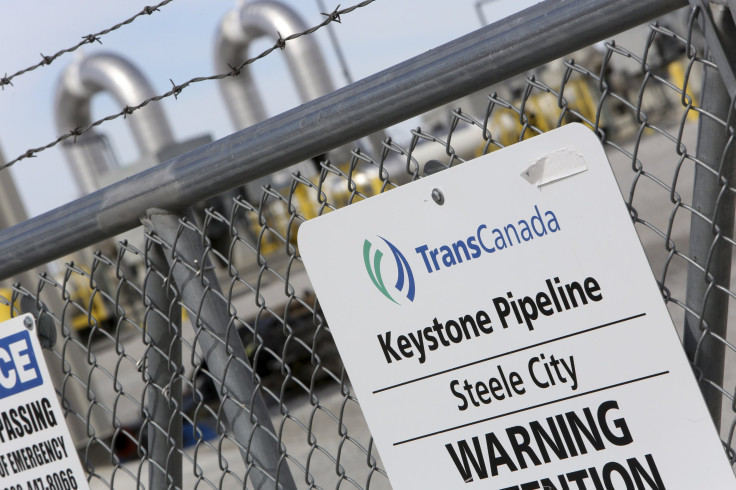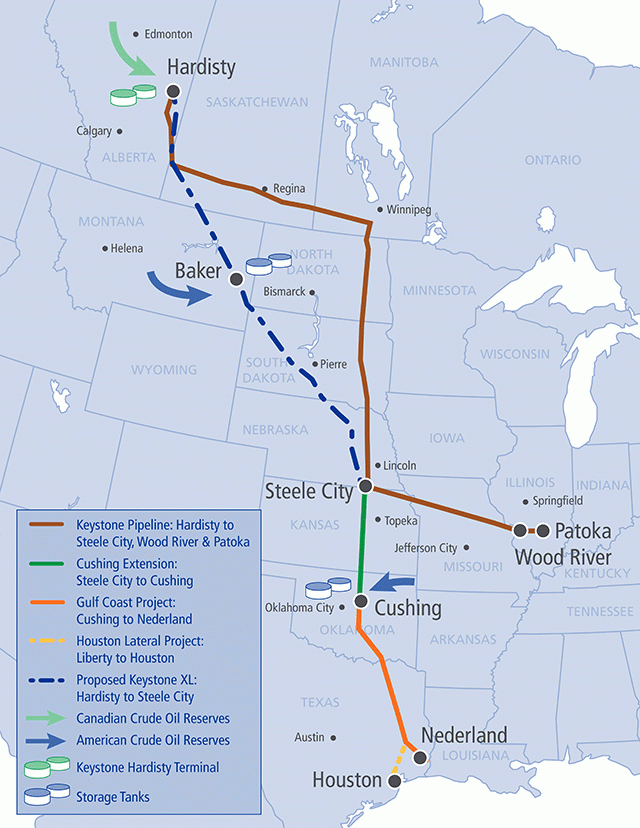Keystone XL Pipeline: Landowners, State Attorneys Square Off In Nebraska Supreme Court Over Proposed Pipeline Route

Opponents and defenders of the Keystone XL's route through Nebraska squared off in the state’s highest court Friday morning. The camps gave oral arguments in the appeal of Thompson v. Heineman, a lawsuit brought by landowners that could determine when -- or if -- the controversial crude oil pipeline gets built in the United States.
At the core of the dispute is a 2012 state law, L.B. 1161, which gave Republican Gov. Dave Heineman the power to approve a new 300-mile route for the Keystone XL in the state. Randy Thompson, Suz Straka and Susan Dunavan, whose properties would be crossed by the conduit, challenged the law, and in February, Judge Stephanie Stacy ruled in their favor and invalidated the route. The judge declared the pipeline a “common carrier,” like a railroad, which is regulated by Nebraska’s Public Service Commission -- not the governor’s office -- under the state constitution. The state is appealing that decision.
At the hearing, Katie Spohn, a deputy attorney general, argued that the “common carrier” clause doesn’t apply to interstate pipelines like the Keystone XL, which would run 1,179 miles through Canada, North Dakota and South Dakota and Nebraska before ending in Steele City, near the border with Kansas. (From there, it would connect to an existing southern leg that connects to refineries on the Texas Gulf Coast.)

Common carriers “operate in Nebraska and through Nebraska, but not outside of Nebraska,” according to the common law definition, Spohn said. The Public Service Commission therefore doesn’t have regulatory authority over the route, she added.
The Obama administration, which has the final say on the overall Keystone XL route, is watching closely to see what the state court decides. If Nebraska judges agree with the state and uphold the route, that could hasten the approval process in Washington, D.C. But if they stand by Stacy’s February ruling and scrap the Nebraska route, that could send the pipeline’s builder TransCanada Corp. (NYSE:TRP) back to the drawing board.
Dave Domina, the three landowners’ attorney, disputed Spohn’s case in his oral arguments. He said the Nebraska constitution doesn’t limit the Public Service Commission’s authority to just intra-state infrastructure.
And he argued that one of the biggest flaws with L.B. 1161 is that it enables the governor to award permits to private, for profit companies without any additional scrutiny from regulators or the public. “The gubernatorial avenue is clearly designed to preclude any citizen input in a judicial setting and any judicial review,” Domina told the judges.
“We see the court’s decision as pretty simple and straightforward,” he said.
Even so, observers don’t expect the court to issue a final ruling before the end of this year. "These things typically take three to six months," Jane Kleeb of the group Bold Nebraska, which is leading the landowner opposition to the pipeline, told reporters last month.
© Copyright IBTimes 2024. All rights reserved.





















